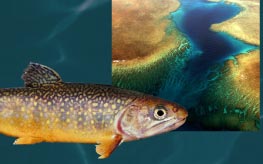9 November
Chris Harley
Assistant Professor, University of British Columbia, Department of Zoology
Climate Change and the Ecology of Rocky Shores
Abstract
Climate change is having dramatic effects on marine species and ecosystems. Although the direct impacts of climate change on individuals are relatively easy to predict, the socio-economically important consequences of climate change emerge only after direct impacts have been filtered through interactions among species (including humans). My research on rocky shores focuses on the ways in which interspecific interactions will determine the ultimate impacts of global warming. For example, changes in thermal stress can shuffle intertidal zonation patterns and thus create or eliminate spatial refuges from competition (e.g. with territorial limpets) and predation (e.g. by the much-feared sea star Pisaster). The combination of abiotic stress and strong interspecific interactions creates distribution and abundance patterns at a variety of spatial scales, and may lead to local extinctions in the future. In addition to changing in importance, interactions between species may actually change sign. For example, a parasitic cyanobacteria that infests mussel shells acts as a keystone mutualist during periods of thermal stress. Thus, species that might be overlooked at present could be key players in the future. Finally, I will present some long-term data for a climatically-sensitive intertidal species. These data show that ecological change does occur in the expected direction, but not necessarily at the expected rate or with the expected pattern.
Bio
- BSc: Brown University (1994)
- PhD: University of Washington (2001, with Bob Paine)
- Post-doc #1: Hopkins Marine Station, Stanford University (with Mark Denny, 2001-03)
- Post-doc #2: Bodega Marine Lab Institutional Post-doc (2003-05)
- Assistant Prof, UBC Dept. of Zoology (2005 to present)
- Favorite pie: strawberry rhubarb
- Favorite Latin binomial: Boops boops
- Lifetime record at the International Pillow-fighting Championships: 2-2
Aquatic & Fishery Sciences Home
The University of Washington is committed to providing access, equal opportunity and reasonable accommodation in its services, programs, activities, education and employment for individuals with disabilities. To request disability accommodation, contact the Disability Services Office at least 10 days in advance at 206-543-6450/V, 206-543-6452/TTY, 206-685-7264 (FAX); dso@u.washington.edu.
webmaster@fish.washington.edu
Updated

